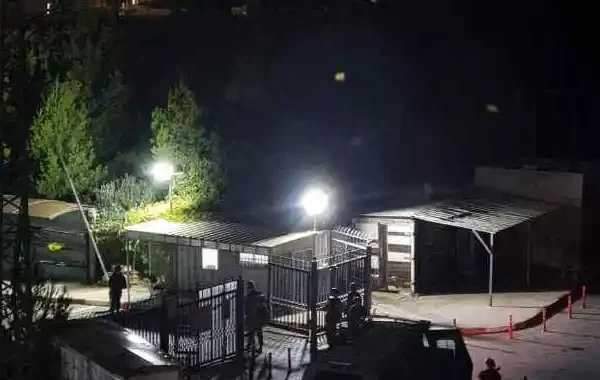Latest Posts
Microsoft blocks Israel’s use of its technology in mass surveillance of Palestinians
Exclusive: Tech firm ends military unit’s access to AI and data services after Guardian reveals secret spy project
Civilian injuries in Gaza similar to those of soldiers in war zones, study finds
Wounds such as burns or leg injuries more common in Gaza than among US soldiers who fought in Iraq and Afghanistan
Physicians for Human Rights visited Dr. Abu Safia in prison
During a visit we were able to conduct today with Dr. Hussam Abu Safia, director of Kamal Adwan Hospital, who was arrested in December 2024 and is being held in Israel – a difficult and worrying picture was revealed.
MIT Professor Cancels Israeli Military Grant After Student Pressure
“This concession shows that student campaigns do have an influence,” one student said. « These ties cannot survive transparency. »
A question of humanity: the bond between an injured Gazan pharmacist and a French doctor
« Hi, Cathy. There was a bombing at a cafe. Bashar’s leg is seriously injured. 80% of his friends are dead.” That is the heart-stopping message Dr Catherine Le Scolan-Quéré received….
‘We are at our limit’: Gaza’s last hospitals overwhelmed as thousands flee south
‘Not enough of anything’, says surgeon, as Israel’s assault forces injured, sick and hungry people to leave Gaza City
Birzeit University Under Attack: Fifth Invasion Amid Ongoing Genocide and Scholasticide
At midnight of September 22, 2025, Israeli occupation forces once again stormed Birzeit University. Israeli Soldiers violently assaulted campus guards before raiding several university buildings, including the Faculty of Arts, the Faculty of Art, Music and Design, the Naseeb Azeez Shaheen Auditorium, and the Student Council office.
Israel attack on Yemeni newspaper was second deadliest on journalists ever recorded
Press freedom group says ‘brutal and unjustified attack’ is deadliest since 2009 Maguindanao massacre in Philippines
EUROPEAN DECLARATION OF CONSCIENTIOUS OBJECTION
No academia as usual during Israeli occupation, apartheid and genocide in Palestine




